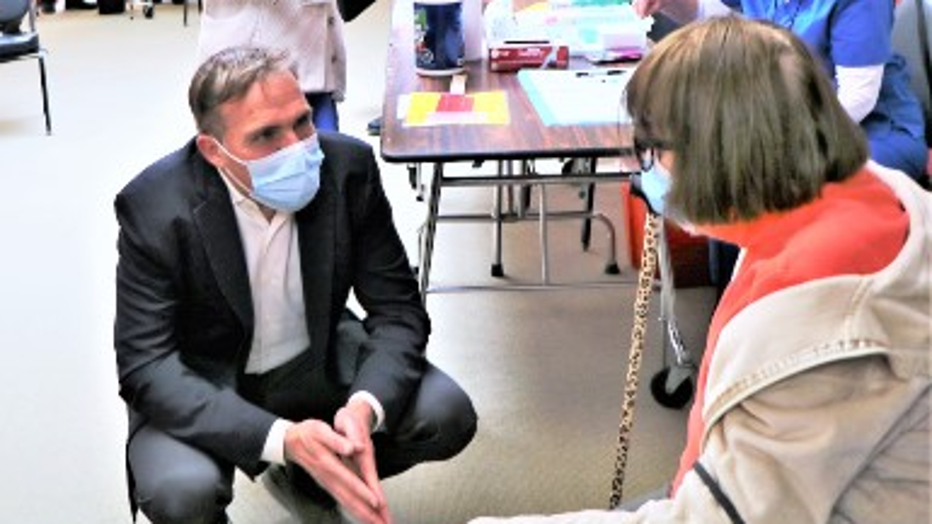Bay Area counties reinstate indoor mask mandate - exceptions no longer apply
NOVATO, Calif. - Sonoma, San Francisco, Marin, Alameda, Contra Costa counties and the city of Berkeley are all tightening up their indoor mask mandates.
Starting on Thursday at midnight, these counties are aligning with the California Department of Public Health and requiring the wearing of face coverings in all indoor public places to stem the virus’ spread. The new rules remain in effect through at least Jan. 15.
Therefore, any previous local face covering exemptions carved out for indoor spaces with vaccinated people will no longer apply.
Bay Area counties rescind mask exemptions
Marin, San Francisco, Sonoma, Alameda and Contra Costa counties say they will no longer allow indoor mask mandate exceptions for small settings like college and fitness classes in which everyone is fully vaccinated.
That includes gyms, fitness centers, office settings, employee commuter vehicles, religious gatherings, college classes, and similar settings.
"Personally now, I would feel more comfortable wearing a mask anytime I'm going indoors, anywhere, so again, we're kind of in a different time," said Dr. Peter Chin-Hong, a UCSF infectious disease specialist.
The state's indoor mask mandate went into effect Dec. 15.
At that time, several counties were given an option to adopt a pre-existing mask order in lieu of the state’s order. Marin, Sonoma, San Francisco, Contra Costa, Alameda counties, and the city of Berkeley – adopted local orders that allowed some exemptions not found in the state’s policy.
The reinstated rules come as California reached 5 million coronavirus cases, including the first omicron case in Marin County on Dec. 17.
Since then, health officials say the average daily COVID-19 case counts have tripled.

Dr. Matt Willis, Marin County Public Health Officer, speaks with a woman at a COVID-19 vaccination clinic earlier this year. Courtesy: Marin County
"When we see numbers like this, it’s time to respond," said Marin County Public Health Officer Dr. Matt Willis. "The mask exemption for certain settings was a pre-Omicron policy. This variant behaves differently, and the risk of infection in a room full of vaccinated people who are unmasked is much higher now."
Despite rising case counts, hospitalization rates for COVID-19 infections have remained stable across Marin County, which health officers say is attributed to Marin County’s very high vaccination rate; 92.1% of Marin's population aged 5 and over has completed a COVID-19 vaccine series.
"We realized that omicron dosen't care necessarily about vaccination status, making situations or gatherings indoors without masks much higher risk," said Marin County spokeswoman Laine Hendricks.
In Contra Costa County, the of the omicron variant was first identified in the county on Dec. 18, and since then case rates and hospitalizations have significantly increased. The average number of daily new COVID-19 cases has increased 149% over the last week and hospitalizations have risen 31%.
"I recommend this New Year's Eve to really stay at home if you can, to not gather if you can," said Dr. Ori Tzvieli, Contra Costa County deputy health officer. "They say if you're going to throw a party this New Year's, the unexpected guest will be omicron, so this is really the time to maybe take it easier this year."
And in Berkeley, the local daily case rate is 23.3 per 100,000 residents and rising, and the city of Berkeley community transmission is now categorized as "high" on the CDC’s COVID-19 data tracker.
"Omicron may be more transmissible, but we have the tools to prevent infection," Alameda County Health Officer Dr. Nicholas Moss said. "Because even a mild infection in a vaccinated person may be passed on to someone who could become hospitalized, we must take every precaution this winter."

